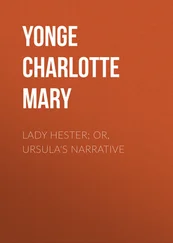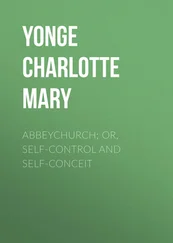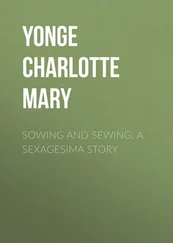Charlotte Yonge - Pioneers and Founders
Здесь есть возможность читать онлайн «Charlotte Yonge - Pioneers and Founders» — ознакомительный отрывок электронной книги совершенно бесплатно, а после прочтения отрывка купить полную версию. В некоторых случаях можно слушать аудио, скачать через торрент в формате fb2 и присутствует краткое содержание. Жанр: foreign_prose, foreign_religion, Философия, foreign_psychology, foreign_antique, на английском языке. Описание произведения, (предисловие) а так же отзывы посетителей доступны на портале библиотеки ЛибКат.
- Название:Pioneers and Founders
- Автор:
- Жанр:
- Год:неизвестен
- ISBN:нет данных
- Рейтинг книги:3 / 5. Голосов: 1
-
Избранное:Добавить в избранное
- Отзывы:
-
Ваша оценка:
- 60
- 1
- 2
- 3
- 4
- 5
Pioneers and Founders: краткое содержание, описание и аннотация
Предлагаем к чтению аннотацию, описание, краткое содержание или предисловие (зависит от того, что написал сам автор книги «Pioneers and Founders»). Если вы не нашли необходимую информацию о книге — напишите в комментариях, мы постараемся отыскать её.
Pioneers and Founders — читать онлайн ознакомительный отрывок
Ниже представлен текст книги, разбитый по страницам. Система сохранения места последней прочитанной страницы, позволяет с удобством читать онлайн бесплатно книгу «Pioneers and Founders», без необходимости каждый раз заново искать на чём Вы остановились. Поставьте закладку, и сможете в любой момент перейти на страницу, на которой закончили чтение.
Интервал:
Закладка:
His commencement in carrying out this system was to preach Jethro’s advice to Moses, and thence deduce that the Indians should divide themselves into hundreds and into tens, and elect rulers for each division, each tithing man being responsible for the ten under him, each chief of a hundred for the ten tithings. This was done on the 6th of August, 1651; and Eliot declared that it seemed to him as if he beheld the scattered bones he had spoken of in his first sermon to the Indians, come bone to bone, and a civil political life begin. His hundreds and tithings were as much suggested by the traditional arrangements of King Alfred as by those of Moses in the wilderness; and his next step was, in like manner, partly founded on Scripture, partly on English history,—namely, the binding his Indians by a solemn covenant to serve the Lord, and ratifying it on a fast-day. His converts had often asked him why he held none of the great fast-days with them that they saw the English hold, and he had always replied that there was not a sufficient occasion, but he regarded this as truly important enough. Moreover, a ship containing some supplies, sent by the Society in England, had been wrecked, and the goods, though saved, were damaged. This he regarded as a frown of Providence and a fruit of sin. Poor Cutshamakin also was in trouble again, having been drawn into a great revel, where much spirits had been drunk; and his warm though unstable temper always made him ready to serve as a public example of confession and humiliation. So when, on the 24th of September, 1651, Mr. Eliot had conducted the fast-day service, it began with Cutshamakin’s confession; then three Indians preached and prayed in turn, and Mr. Eliot finally preached on Ezra’s great fast. There was a pause for rest; then the assembly came together again, and before them Mr. Eliot solemnly recited the terms of the Covenant, by which all were to bind themselves to the service of the Lord, and which included all their principal laws. He asked them whether they stood to the Covenant. All the chiefs first bound themselves, then the remainder of the people; a collection was made for the poor; and so ended that “blessed day,” as the happy apostle of the Indians called it.
When Governor Endicot shortly after visited the place, he was greatly struck with the orderliness and civilization he found there. “I account this one of the best journeys I have made for many years,” he says. Many little manufactures were carried on, in particular one of drums, which were used for lack of bells in some of the American settlements, as a summons to come to church.
There was a native schoolmaster, named Monequassum, who could write, read, and spell English correctly, and under whom the children were making good progress. Promising lads were trained by Mr. Eliot himself, in hopes of making them act as missionaries among their brethren. All this time his praying Indians were not baptized, nor what he called “gathered into a Church estate.” He seems to have been determined to have full proof of their stability before he so accepted them; for it was from no inclination to Baptist views that he so long delayed receiving them. However, on the 13th of October, 1652, he convened his brother-ministers to hear his Indians make public confession of their faith. What the converts said was perfectly satisfactory; but they were a long-winded race, accustomed to flowing periods; and as each man spoke for himself, and his confession had to be copied down in writing, Mr. Eliot himself owns that their “enlargement of spirit” did make “the work longsome.” So longsome it was, that while the schoolmaster was speaking every one got restless, and there was a confusion; and the ministers, who had a long dark ride through the woods before them, went away, and were hard to bring back again, so that he had to finish hearing the declarations of faith alone.
Still, he cut off the baptism and organization of a church till he had sent all these confessions to be considered by the Society in England, printed and published under the title of “Tears of Repentance,” with a dedication to Oliver Cromwell. Then came other delays; some from the jealousy and distrust of the English, who feared that the Indians were going to ally themselves to the Dutch; some from the difficulty of getting pastors to join in the tedious task of listening to the wordy confessions; and some from the distressing scandal of drunkenness breaking out among the Indians, in spite of the strict discipline that always punished it. It was not till 1660 that Mr. Eliot baptized any Indians, and the next day admitted them to the Lord’s Supper, nine years after he had begun to preach. The numbers we do not know, but there is no doubt that he received no adults except well proved and tried persons coming up to the Puritan standard of sincerity and devotion.
At this time the Society at home was in great danger; for, on the Restoration, the charter had become void, and, moreover, the principal estate that formed the endowment had been the property of a Roman Catholic,—Colonel Bedingfield,—who resumed possession, and refused to refund the purchase money, as considering the Society at an end. It would probably have been entirely lost, but for the excellent Robert Boyle, so notable at once for his science, piety, and beneficence. He placed the matter in its true light before Lord Clarendon, and obtained by his means a fresh charter from Charles II. The judgment in the Court of Chancery was given in favour of the Society, and Boyle himself likewise endowed it with a third part of a grant of the forfeited impropriations in Ireland which he had received from the king. But all the time there was a great disbelief in the efficacy of the work among the Indians both at home and in New England. It was the fashion to call all the stories of Indian conversions mere devices for getting money, and the unhappy, proud hostility that almost always actuated the ordinary English colonist in dealing with natives, was setting in in full force. However, at Massachusetts, the general court appointed an English magistrate to hold a court of judicature in conjunction with the chiefs of the Christian Indians, and to be in fact a sort of special member of government on their behalf. The first so appointed was Daniel Gookin, a man of great piety, wisdom, and excellence, and a warm friend of Mr. Eliot, with whom he worked most heartily, not only in dealing with the Indians of Natick, but with all those who came under English jurisdiction, providing schools, and procuring the observance of the Sunday among them. It was also provided that the Christian Indians should set apart a tenth of all their produce for the support of their teachers—a practice that Mr. Gookin defended from the charge of Judaism. It seems as if these good men, who went direct to the Old Testament for their politics, must have been hard set between their desire of scriptural authority and their dread of Judaizing.
It was well for Eliot that he had friends, for in the first flush of the tidings of the successes of the Puritans in England, he had written a set of papers upon Government, entitled the “Christian Commonwealth,” which had been sent to England, and there lay dormant for nine or ten years, until in the midst of all the excitement on the Restoration, this speculative work, the theory of a scholar upon Christian democracy, was actually printed and launched upon the world at home, whether by an enemy or by an ill-advised friend does not appear, and without the author’s consent. Complaints of this as a seditious book came out to New England, and John Eliot was forced to appear before the court, when he owned the authorship, but disowned the publication, and retracted whatever might have declared the Government of England, by King, Lords, and Commons, to be anti-Christian, avowing it to be “not only a lawful but eminent form of government, and professing himself ready to conform to any polity that could be deduced from Scripture as being of Divine authority.” The court was satisfied, and suppressed the book, while publishing Mr. Eliot’s retractation. Some have sneered at his conduct on this occasion as an act of moral cowardice; but it would be very hard if every man were bound to stand to all the political views expressed in an essay never meant for the general eye, ten years old, and written in the enthusiasm of the commencement of an experiment, which to the Presbyterian mind had proved a grievous disappointment.
Читать дальшеИнтервал:
Закладка:
Похожие книги на «Pioneers and Founders»
Представляем Вашему вниманию похожие книги на «Pioneers and Founders» списком для выбора. Мы отобрали схожую по названию и смыслу литературу в надежде предоставить читателям больше вариантов отыскать новые, интересные, ещё непрочитанные произведения.
Обсуждение, отзывы о книге «Pioneers and Founders» и просто собственные мнения читателей. Оставьте ваши комментарии, напишите, что Вы думаете о произведении, его смысле или главных героях. Укажите что конкретно понравилось, а что нет, и почему Вы так считаете.












